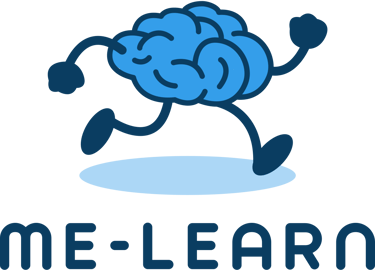Self-Deception
The learning process has been studied for over 100 years. A key finding is that learners often misjudge their own learning success (metacognition) and use ineffective learning strategies because effective methods are perceived as difficult and slow.
Easy learning is like writing in sand – it fades quickly. Difficult learning is like carving into stone – it lasts over time.
Effective learning methods are rarely incorporated into curricula. Many students continue to use ineffective techniques such as rereading or highlighting, which may feel productive but do not yield the desired results for the same amount of time invested.
More efficient strategies enable faster and more sustainable learning.
Writing summaries is often inefficient as well, since learning success strongly depends on the quality of the summary. Only when used deliberately and reflectively can such methods truly be effective.
Ineffective Learning Methods
Active Recall
The most effective learning method to emerge from over 100 years of research requires a fundamental shift in the learning process.
Many people believe that learning is about absorbing information, but they often find that they retain little after lectures or reading books. The key lies in active recall: actively retrieving knowledge from memory helps form new synapses and strengthen existing connections.
In our lectures, we offer advice and examples on active recall and apply this method directly to the content being taught.
Spacing
Spacing is a learning method in which study sessions are separated by time intervals instead of relying on intensive cramming. This approach improves long-term memory retention and enhances recall.
The spacing effect works across all age groups and areas of application.
Although the neural processes and the optimal interval for maximum learning success are not yet fully understood, studies show that time intervals ranging from a few seconds to weeks promote long-term learning outcomes.
Interleaving
Interleaving is an application-oriented learning method that was originally studied in sports and is increasingly gaining importance for skill development and cognitive learning.
In this method, different topics or subjects are learned alternately rather than in blocks, which promotes long-term retention and supports the application of learned material in various situations.
We provide practical advice and avoid common mistakes. When applied correctly, interleaving can significantly enhance learning outcomes.
Variation
Learning is more effective when it is varied. A study with 8-year-olds showed that children who trained alternately on different distance targets performed better when throwing at a target 90 cm away than the group that practiced only this target¹.
This applies not only to motor skills but also to cognitive learning. Variations in the environment lead to better learning outcomes. We offer additional application tips in our lectures and workshops.
¹Kerr R, Booth B. Specific and varied practice of motor skill. Percept Mot Skills. 1978
